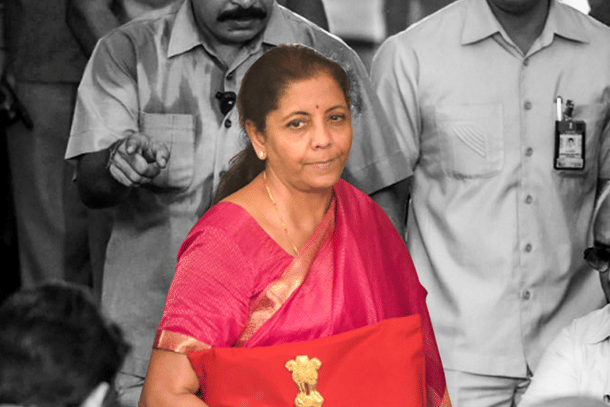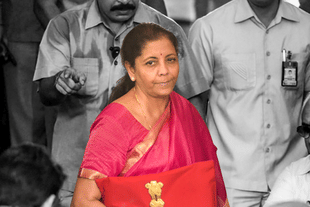News Brief
Union Budget 2025: Nirmala Sitharaman To Present Modi 3.0's First Full Budget; Key Tax Reforms, Infrastructure Push Expected
Kuldeep Negi
Feb 01, 2025, 09:39 AM | Updated 09:39 AM IST
Save & read from anywhere!
Bookmark stories for easy access on any device or the Swarajya app.


Finance Minister Nirmala Sitharaman is set to present the Union Budget 2025 today, marking her eighth consecutive Budget. This puts her close to Morarji Desai’s record of presenting 10 Budgets during his tenure.
The Budget will be presented amid a challenging economic backdrop, with growth slowing to a four-year low and rising geopolitical uncertainties.
Additionally, newly elected US President Donald Trump’s tariff warnings against India and other nations have added to concerns.
Sitharaman will begin her Budget speech at 11 am.
Major Tax Reforms Expected
Taxation changes are expected to be a key highlight of the Budget.
Reports suggest that the government may increase the basic exemption limit to Rs 10 lakh and introduce a 25 per cent tax slab for incomes between Rs 15-20 lakh under the new tax regime.
These potential changes aim to provide relief to the middle class while addressing economic challenges such as inflation and sluggish growth.
Infrastructure Investment Likely to Remain a Priority
Experts believe the Budget will continue to emphasise infrastructure development, a critical driver of economic expansion.
The government has already earmarked 23 per cent of its total spending for capital expenditure, and further initiatives in this sector are expected.
Infrastructure investments are crucial for attracting private capital and generating employment, both essential for achieving the “Viksit Bharat” vision by 2047.
Financial Inclusion and Credit Access
With the Economic Survey highlighting financial inclusion for rural households and small businesses, the Budget may introduce measures to facilitate credit access through microfinance institutions, self-help groups, and other financial intermediaries.
Fiscal Deficit Challenges
Managing the fiscal deficit remains a key challenge. Currently standing at Rs 9.14 lakh crore, or 56.7 per cent of the annual target, the government aims to reduce it to 4.9 per cent of GDP this year, with a long-term goal of bringing it below 4.5 per cent. Controlling spending will be crucial to achieving this target.
Kuldeep is Senior Editor (Newsroom) at Swarajya. He tweets at @kaydnegi.





